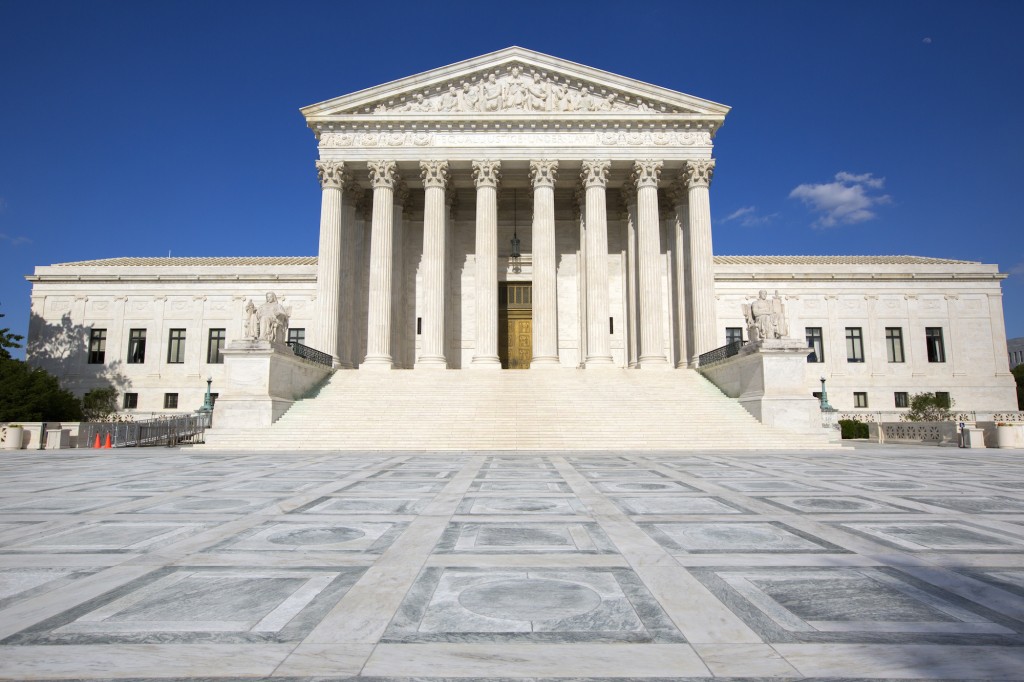
Why a Win for Religious Freedom is a Win for Women, Too
Chelsea Langston, May 26,2016
On May 16th, the U.S Supreme Court came to a unanimous ruling in favor of the Little Sisters and other religious nonprofits, finding that the government cannot monetarily penalize the Little Sisters for their inability to act against their deeply held religious beliefs. The Supreme Court acknowledged what the government itself had admitted, that it could achieve its aims of providing women with free reproductive health services (inc. abortifacients) without mandating religious nonprofits to violate their deeply-held faith tenets. Additionally, the Supreme Court removed the lower court decisions and remanded the case to the respective Courts of Appeals for the Third, Fifth, Tenth and D.C circuits. In its per curiam decision, the Court stated: “the parties on remand should be afforded an opportunity to arrive at an approach going forward that accommodates petitioners’ religious exercise while at the same time ensuring that women covered by petitioners’ health plans “receive full and equal health coverage, including contraceptive coverage.”
The Supreme Court clarified that it found giving religious nonprofits and the government space and time to innovate a solution that meets both parties objectives (mediated by the lower courts) was a “most suitable” next step than for the Supreme Court to innovate such a solution itself. The Court acknowledged that potential conflicts may still arise in this process, but asserted that it was unclear whether it would be necessary for those areas of difference to be worked out by the Supreme Court itself. In other words, the per curiam decision reflects that the Supreme Court believes that “given the substantial clarification and refinement in the positions of the parties,” both sides have demonstrated enough concurrence on key points, such as the confirmation of the government that it is capable of devising an alternative means to provide women with contraceptive coverage, to implore both sides to work it out for themselves.
On May 17th, President Obama celebrated the Court’s decision as a victory for both women’s access to healthcare and religious freedom for diverse faith-based nonprofits that serve their communities in a multitude of ways. The President stated: “The practical effect right now is that women will still continue to be able to get contraception, if they are getting health insurance. And we are properly accommodating religious institutions who have objections to contraception.”
After oral arguments in March, the Supreme Court took the first-time action of asking for supplemental briefs from both sides addressing the question of “whether contraceptive coverage could be provided to petitioners’ employees, through petitioners’ insurance companies, without any such notice from petitioners.”
The Little Sisters and other religious nonprofits told the Court “Yes.” They unequivocally did not object to the government meeting its goals of providing health services for women, as long as the religious nonprofits did not have to violate their religious beliefs and be a participant. The government’s confirmation that it did have alternative means at its disposal of providing contraceptive services to women without doing it through the plans of objecting religious nonprofits altered the question the court was being asked to decide. As the Becket Fund wrote, the Court went from “deciding whether the Little Sisters’ religious beliefs should trump government interests to simply requiring the government to truly remove the Little Sisters from the process and protect their religious liberty by meeting goals through one of the many options it now admitted were possible.”
The Court’s decision was not just a win for religious freedom, although it was that many times over. It was also a win for women. The government’s stated goal in this case is to provide free access to contraceptive coverage for women through the insurance they receive from their employer. Yet, the federal government already provides exemptions from the health law’s HHS Mandate to large secular corporations such as Pepsi, Chevron, Visa, and even the US military. If the government is going to insist female employees of religious nonprofits receive contraceptive coverage for free, they should at least be consistent and use the Supreme Court’s decision as a catalyst for developing a solution that does not give exemptions to secular corporations and not nuns.
Mark Rienzi, senior counsel at the Becket Fund for Religious Liberty, stated: “This is a game-changer. This unanimous decision is a huge win for the Little Sisters, religious liberty and all Americans…The Court has accepted the government’s concession that it could deliver these services without the Little Sisters. The Court has eliminated all of the wrong decisions from the lower courts and protected the Little Sisters from government fines.”
